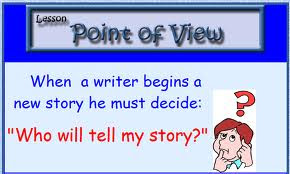How many times have you read a newspaper article about your topic, your area of interest, the subject about which you are an undeniable authority—and felt disheartened and disgusted that you were not the person who was being quoted?
- “I could have given that reporter a lot better interview than ____.”
- “The so-called expert quoted in this article doesn’t know what the heck he/she is talking about!”
- “That guy who got interviewed didn’t even mention ________. Any story on this subject is incomplete without discussing _______.”
Well, all is not lost if you weren’t the expert quoted. There’s still a way to get your message and your name published in that newspaper.
Here’s how:
Write a letter to the editor referencing the article you read—the one without any quotes from you. In your letter, you can (1) take issue with what you read in the article, (2) agree with what you read, but expand on the issue (don’t expand too much, though—remember this is just a letter!), (3) introduce a little-known fact or issue related to the subject or, (4) simply congratulate the paper for having the extraordinary insight to cover the story in the first place!
So, how do you rack up PR points for yourself with a letter to the editor?
In only a few words, you can establish yourself an expert in the subject covered in the story. Ex: “As a dogcatcher with twenty years experience cornering canine’s in our comunity, I believe that . . .” But please, please be careful not to offer up a litany of self-serving comments [ex: “. . . as a five-time award winner in the Canine Catchers’ Hall of Fame, I see the issue another way . . .”]. Such literary acting out will guarantee your letter a place in the editor’s round file.
Some people ask, “How can a simple letter to the editor even compare with being quoted in an article?”
Look at it this way: letters to the editor are always published in the editorial section – possibly the most respected real estate in any newspaper. Simply by being included in these venerable environs, your letter—thus you—are accorded a great measure of credibility.
And, by the way, who reads these letters? Get yours published and see for yourself how friends and colleagues will come out of the woodwork commenting or congratulating you on getting it in paper.
One more thing: What—in the opinion of Judy Minshew, the Houston Chronicle editor whose only job it is to select letters for publication—is the reason that most letters are rejected as unusable?
“The ones most likely to be picked,” she says, “are the shorter ones, written concisely and succinctly on one topic.” And, make no mistake—like editors in her position all over the country, Minshew wants those cards and letters to keep coming in.
“The next time the Chronicle gets your heart racing,” she says, “please, send us a letter."
Sharon Dotson, APR, is the owner of Houston-based Bayou City Public Relations, a PR firm specializing in getting positive media coverage for small, successful niche businesses.
'via Blog this'

